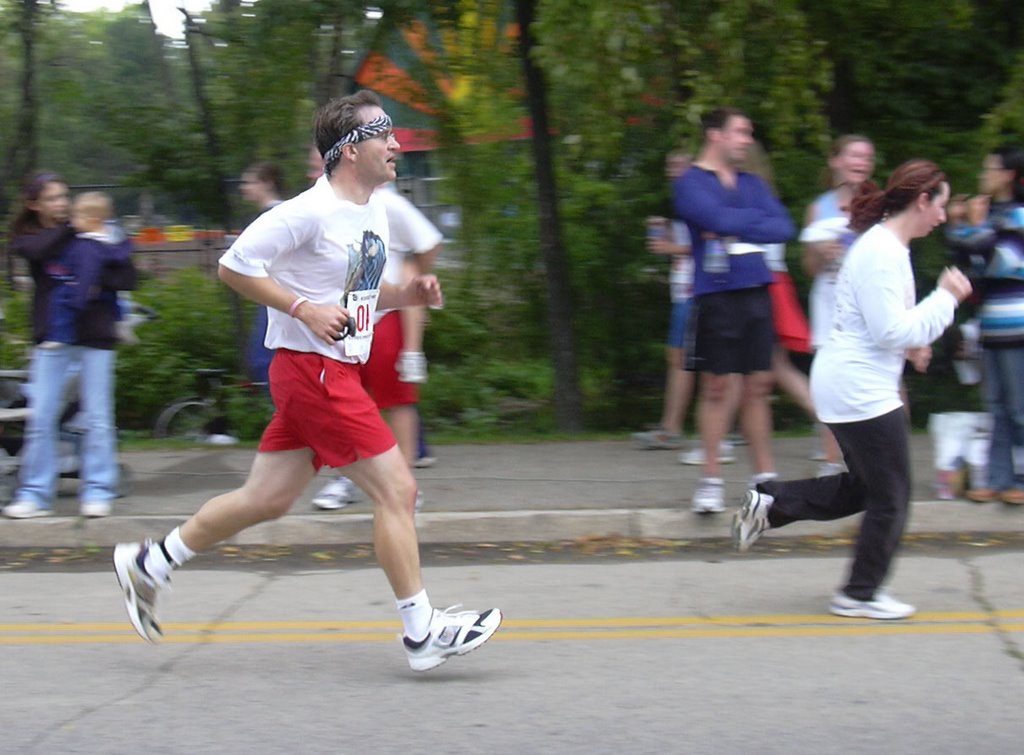Today's workshop was by author/activist Tim Wise. I have to admit that he drew me in more than I expected.
The title was something about "white privilege," a phrase that usually makes my hair stand on end. I'm not denying that such a thing exists. I'll be the first to acknowledge that as a white, straight male, I take for granted some things that other people have to fight for. My problem is that most of the time people who talk about "white privilege" seem to be guilt-mongers.
Take the story that Wise led off his talk with. The question is how exactly this relatively young white guy came to be talking to us about racism. Well, of course, he has a certain reputation as an anti-racist activist. How did he get that? Well, he had a good start, working on the campaign against David Duke right out of college. How did he get that job? Well, he knew a couple of people who were organizing the campaign. How did he know them? From college at Tulane. How did he go to college? Well, his parents had to take out a loan, using his grandmother's house as collateral. His grandmother had bought the home relatively cheaply, and it had increased in value. Of course, if his family had been black, they wouldn't have been able to buy the home, and if they had, it wouldn't have increased in value. So he was here precisely because he was white. He had an opportunity that a black man of his age and background literally wouldn't have had.
OK, fine. So what are we going to do about it? We can't go back in time and give that opportunity to someone else. We can't erase America's terrible legacy of racism. So, we'll just sit here and feel guilty about how unfair it is.
Except that Wise made a pretty good case that there is a point to all this. It's not simply a matter of wallowing in guilt. It's also recognizing that institutional racism exists today, and that we -- the overprivileged -- have to be on the lookout for it. The story that he told at the very end of his prepared remarks really caught my attention. He talked about traveling to give some talk somewhere, getting on a plane, and noticing that both pilots were black. His first thought was something like, "Gee, I hope these guys know how to fly this thing." Of course he recognized instantly how silly that was -- if anything, these guys were going to be better than white pilots, because they had to work harder to prove themselves. But the point is that no one -- no one -- can rise above their stereotypes. They are part of the human condition. They are part of the culture we live in. Here's a guy who spends his life fighting racist stereotypes, but he still has them.
So we need to be aware of our own stereotypes. The deeper they are, the harder we have to work to uncover them. We need to do this so that we can reject them. If we pretend that we don't have stereotypes, we're fooling ourselves. If we pretend that the playing field is finally level -- for the first time in history, blacks have exactly the same opportunities as white -- we're fooling ourselves. We need to know about the problems, so we can work to fix them.
MAD, We Hardly Knew Ye…
6 years ago


0 comments:
Post a Comment